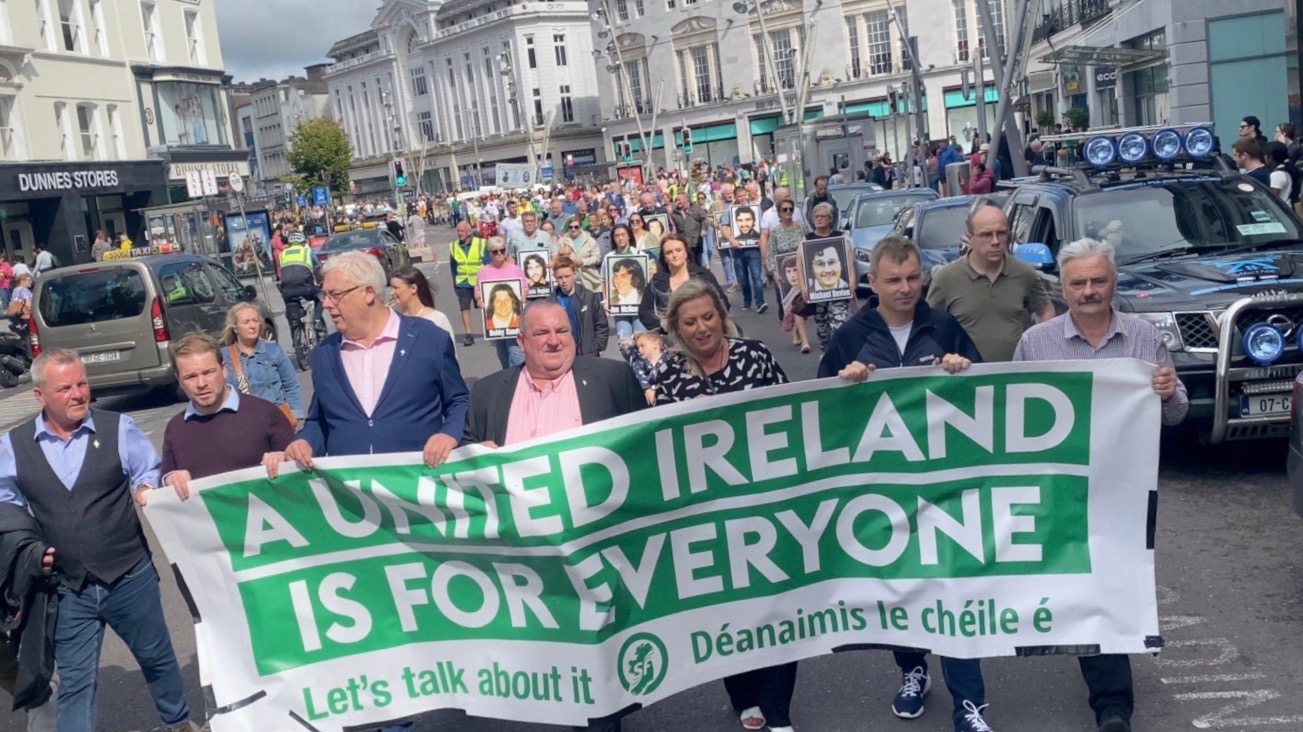
On Sunday, August 27, republican groups observed the 42nd anniversary of the hunger strikes by Irish republican prisoners in Northern Ireland in 1981. Sinn Fein organized a major event which was attended by thousands of people in Cork. Groups including the Connolly Youth Movement (CYM) participated in the hunger strikers’ commemoration in Dublin organized by Independent Dublin Republicans.
The events commemorated the 10 Irish republican prisoners in UK-controlled Northern Ireland who died during a hunger strike in 1981 to protest the withdrawal of their status as political prisoners during ‘The Troubles’ (1960s-1998). The gatherings also commemorated 12 other Irish republicans who died while on hunger strikes before 1981 for the sake of freedom from Britain.
The six counties in the north of Ireland have historically been at the heart of the struggle for national liberation from British colonial rule. While the Republic of Ireland was finally established in 1949 after a decades-long armed rebellion led by the Irish Republican Army (IRA), six counties in the North remained under British control as per the provisions of the Government of Ireland Act 1920 and the Anglo-Irish Treaty of 1921. This partitioned Ireland into two — the Catholic majority counties in the South (present-day Irish Republic) and six counties in the North with a large population of Protestant settlers who wanted to maintain ties and union with Britain.
The partition of Ireland even caused divisions within the Irish Republican movement. The left-wing republican outfit Sinn Fein opposed the treaty and called for the reunification of Ireland. During the 1960s, targeted attacks on pro-republican, Catholic majority neighborhoods in Northern Ireland by pro-British paramilitaries and state security forces became commonplace. The radicals within the anti-treaty sections in the North, including Sinn Fein, organized the provisional IRA to resist these assaults and to organize counter-attacks. This culminated in an informal civil war known as the Troubles, which lasted for three decades and formally ended with the Good Friday Agreements on April 10, 1998.
Irish Republican prisoners in British-controlled prisons had organized hunger strikes on multiple occasions from 1917. Till the end of the Troubles, 22 people died of starvation in such hunger strikes. The most significant of these hunger strikes was in 1981. In 1976, Irish republican prisoners started protests against the withdrawal of their special category status and put forth five demands: (1) the right to not wear a prison uniform; (2) the right to not do prison work; (3) the right of free association with other prisoners, and to organize educational and recreational pursuits; (4) the right to one visit, one letter and one parcel per week; and (5) full restoration of remission lost through the protest. In 1981, the protests culminated in multiple rounds of hunger strikes, starting on March 1 at the HM Prison Maze, and escalated political tensions across the region as solidarity marches swelled in the cities.
One of the hunger strikers, Bobby Sands, the IRA’s former officer commanding (OC) in the prison, was elected to the House of Commons in a by-election from Fermanagh and South Tyrone constituency in April 1981 while he was still on hunger strike. The election of Sands gained much traction in international media and many national and international interlocutors tried to mediate between the hunger strikers and the UK government. But British Prime Minister Margaret Thatcher remained adamant in her contempt for Irish republican prisoners. The republicans continued their strike for months, leading to the death of 10 people, including Sands, due to starvation.
The deaths and further hunger strikes sparked widespread outrage in Northern Ireland and led to an international outcry against British policies and repression. Later, the UK authorities formally and informally agreed to most of the demands of the republican prisoners and the strike came to an end by October 1981. It has been estimated that more than 100,000 people gathered at the funeral ceremony of the 27-year-old Sands in Belfast. The martyrdom of Sands and his comrades further radicalized Irish republicanism and catalyzed the growth of Sinn Fein as a major political force in Northern Ireland.
On Sunday, while addressing the hunger strike commemoration in Cork, Sinn Fein’s Northern Ireland leader Michelle O’Neill warned about the current government’s bid to introduce the Northern Ireland Troubles (Legacy and Reconciliation) Bill, which is allegedly aimed at covertly exonerating the British forces in for their crimes during the Troubles.
This post was originally published on this site be sure to check out more of their content.







